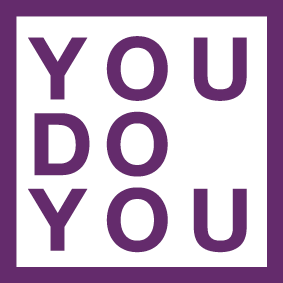End of lockdown. Hands up - who’s a little scared?
Photo by Dimitry B on Unsplash
This week marks one year on from the first lockdown. We all have our own recollections of that crazy week. The realisation that it was actually happening. Thinking it might last a month, and then we’d get back to normal. If someone had told us what was coming, we just wouldn’t have believed it. It all seems like a terrifying episode of ‘Black Mirror’.
But, here we are, twelve months later. We’ve made it, just about. There’s light at the end of the tunnel, and slowly but surely, we’ll begin to emerge. Plans are starting to be made.
Hands up though. Who’s feeling anxious, and a little scared? And I don’t just mean about the virus itself. How will life look now?
A recent study for BBC News and King’s College London, conducted by Ipsos MORI, suggest that many things may have changed permanently. Almost a third of workers (32%) say they anticipate working from home more and doing more of their shopping locally (31%). A quarter of commuters (23%) say they will do less travelling to work than they used to.
I’ll be honest, so much has changed for me. I won’t be going back to the office. After being made redundant in the pandemic and setting up my own business, working from the spare bedroom is now a way of life. I’ve also spent such a disproportionate amount of time with my partner, we joked it was like being retired. It’ll be a huge adjustment to be ‘home alone’ once he’s back at work.
So, whether you’ve been juggling work and home schooling, struggling financially, worrying about ageing parents or feeling alone and isolated, one thing is for sure, we all need to ease ourselves into this. Here are my reflections.
You’ve changed. Yes, we’ve been through a collective traumatic event. But everyone’s personal experience has been very different. More importantly though, you’re different. So much has happened, and it’s changed us. You now have different priorities, a different view. Every single one of us has re-evaluated in the last year. And we’re out of practise in the ‘real world’. We’ve almost forgotten how it was. Go gentle with yourself.
We have a stress hangover and change fatigue. Exhaustion. Burnout. Anxiety. These have become all too familiar in the last year. Not only that, there is so much going on in the world right now — politically, economically, socially. As an over-thinker, sometimes I feel like my brain is going to explode. The constant adjustments, ever-changing restrictions and uncertainty have been challenging. Even the most resilient people have been shaken. So, take time to notice your emotions and talk it out.
It’s ok to say “no”. I have to confess, despite everything, there have been many elements of lockdown that I’ve enjoyed. Clinical psychologist and bestselling author Stefanie Stahl was recently interviewed by Anna Maxted in The Times. “Almost everything in life is just a matter of the choices we make. So, if we enjoyed some parts of the lockdown we should make the decision to integrate these parts more into our lives,” she says.
This means that we may need to learn to say “no” to some things. For many of us, creating these boundaries is difficult. That’s why I loved this recent post by Positive Psychology helping you to say “no”.
Tap into your values — what is really important?
Separate the request from the relationship — declining the request doesn’t mean you’re rejecting the person
Focus on what you will gain by saying “no”
Recognise the personal cost of saying “yes”
Be clear rather than vague and non-committal — “maybe” isn’t a “no”
By saying a graceful “no” to some things, means we can say “yes” to others.
Work may never be the same again. For those working in a traditional office set-up, everyone seems to agree that we’ll have a ‘hybrid’ working model as we emerge. The impact of this could be huge. It has the potential to change how our cities and towns function, with longer term implications about how and where we work. But it’s not simply about how tech has enabled these changes. We also need to adapt emotionally. “Organisations will have to rebuild cultures that foster self-awareness, connection and resilience. People are not born with these skills. They can be learnt, through expert-led self-reflection, group work and practice.” says Rachel Munden, Head of Business at The School of Life (Source: Digital Learning, published by Raconteur)
You don’t need to make any rash decisions. For many of us, the last year has left us asking bigger questions about how we live our life. Having been through my own major life changes in the last four years, the reality has been both terrifying and exciting. In coaching, we often talk about taking small steps in the form of ‘experiments’.
For example, before deciding to downsize my life, I started living on a smaller budget even before I had to. I didn’t move straight out of London to Cornwall, but spent a year living between the two. I stayed here for an extended break over six weeks; a trial run before finally committing to move here permanently. I freelanced for a while before going back into employment again. I rented my house in London before finally deciding to sell up. So, what looks like an ‘overnight’ life change, was actually a series of smaller experiments over a number of years. An adjustment here, a tweak there, all leading towards a longer-term goal.
Dream big but start slow. Let the dust settle. Keep focusing on what you really want, but one step at a time.
If you’d like more insights and reflections, you can sign up to my newsletter ‘The Untangler’ here
Back to homepage

